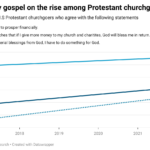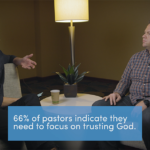
It’s helpful to think through people in your church who may be feel a little on the outside—and are perhaps tempted to jump ship.
By Josh King
Sometimes what we focus on as a church has unintended consequences, like making groups of people feel unwanted.
Church work is largely built around the nuclear family—a mom, a dad, and a few kids. This is why the emphasis is often placed on the children’s ministry.
Don’t get me wrong; I think that’s where the first work should be. Reaching families and children is a great strategy for numerous reasons.
Yet it’s also helpful to think through others in our church who may be feel a little on the outside—and are perhaps tempted to jump ship.
Here are a few of the people with one foot out the door and what it may take to include them.
1. The Single Adult
For most churches this is probably the easiest to identify. Most churches are small in size and lack a robust ministry for single adults. It’s tough to keep them.
In some ways we don’t really blame them. If they desire marriage, what better place to find a spouse than in church?
On the other hand, they’re part of the church family. We want them to feel like they’re part of the family—because they are.
It can go a long way to simply recognize they’re part of the group. For this reason we don’t build all of our women’s events around the joy of motherhood or being a wife.
We also provide supplemental studies that can be applied to all stages of life, not just for marriage.
Single adults aren’t looking for special attention; they just don’t want to be ignored.
2. The Educated
God gave us minds and our ability to reason—yet we rarely engage it. As a result the highly educated and intellectually motivated find us boring and end up leaving.
Engage them through preaching and conversations. We’d do well to build discussion questions on sermons or include points in the sermon in which we discuss or wrestle with deeper thoughts.
For instance, there are always questions about loving our neighbors, but we rarely discuss what it means to love—and how love engages emotions like hate and envy and whether or not love is an emotion at all.
When the deep thinkers in our church discover that nearly everything we do is done out of habit or tradition they disengage looking for a mission that is done for a reason and that is thought through.
3. The Business Smart
I’ve never met a successful business professional who couldn’t understand that the local church is about people, not profits. They get that.
What they have a hard time grasping is why we mismanage the people, the resources, and the strategy. What’s worse is that few churches have a strategy or a budget that aligns with their mission.
To keep this group engaged we must think through stewardship and regularly display a desire to be good managers of the people and resources God has given us.
Just because something is a sound business strategy doesn’t make it worldly. If it’s sound in the business world it’s worth examining for the church world as well.
4. The Bored
The first day of my first soccer practice was in the classroom. We learned about the game.
And while we would regularly find time in the classroom much more of what followed was on the field. We had to actually play the game.
Too many churches are filled with classes and studies and lessons and very little if any activity. It’s no wonder people would leave to go find something to actually do. The obvious solution here is to do something.
You’d be amazed at how many more people will show up to a workday than will show up to a one-day conference—if it’s done right and articulated.
5. The Recent Graduate
It seems like all my ministry cohorts have been concerned with losing the younger groups. Some churches have massive youth ministries but when those students graduate they leave the church.
One of the reasons this happens is the way we switch churches on them. As students, they meet primarily on Wednesday evenings and have home groups and lots of activities. The entire service is interactive and relevant.
All of a sudden—after they’ve received a high school diploma—they’re told to switch to Sunday morning classes, listen to music that doesn’t sound anything like what they’re used to hearing, and to absorb a lecture.
To many, it seems like they’re being forced to go to a completely new church.
The way to stop this is to break some of the disparity between the two. They should complement, not compete. The lead pastor should be visible and present in the NextGen ministries.
Schedules are going to shift, but it shouldn’t feel like a completely different experience.
6. The Principled
The last group with one foot out the door includes people with incredibly high standards.
They have specific views on international missions. They believe there’s one ideal discipleship strategy or program and can’t quite figure out why you wouldn’t want to use it.
For this group, I simply say: Let them go. If you have no strategy or plan in the areas they’re passionate about then by all means learn from them. Perhaps God has led them to your faith family to strengthen you.
But if they seek only to recreate your church in their image, I would just let them keep moving. I promise, you will save yourself so much heartache, and they will eventually leave anyway.
A Multi-Generational Family
Lastly let me just share with you our strategy that has helped get most people to put both feet in our church. We’ve built everything to be about a church family and relationships.
We’re not a collection of specialized ministries. We’re a family made up of several different generations and hundreds of different kinds of people.
This is fleshed out on a smaller scale through small groups. Everyone can be a part of the church family: grandmothers, infants, college students, singles, young professionals, divorcees, and more.
Just like any family.

Josh King
Josh is pastor of Second Baptist Church in Conway, Arkansas, husband of Jacki, and father of three boys.












